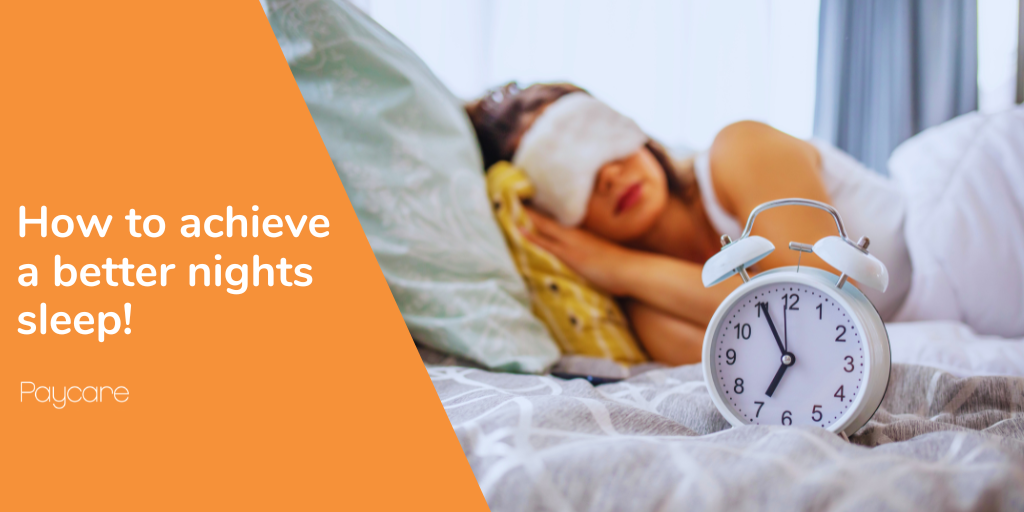Ahhh, sleep – something which many of us love and simply can’t get enough of, whether it’s a 30-minute nap or 12 hour-long sleep and lie-in, we love it!
Sleeping comes with an absolute abundance of benefits – aside from helping us feel relaxed and less tired, sleeping can in fact, regulate our blood sugar levels, improve our memory, reduce the feeling of stress, and help us function effectively throughout the day. Perfect!
However, with this being said, getting a good night’s sleep can often get side-lined. That’s right, there’s increasing pressure to work longer hours, meet up with friends at the new restaurant in town, drag yourself up early to exercise or to even stay up late watching a new TV show!
Sleep deprivation can have both short and long-term effects on the brain. Studies have shown that a lack of sleep diminishes your ability to concentrate and retain new information. It also weakens the link between the emotional and rational regions of the brain, which explains why you’re more short-tempered or emotional after a bad night’s sleep. In the long term, a lack of sleep can also significantly increase the risk of developing Alzheimer’s.
And what about the rest of your body? The physical effects of sleep deprivation include an increased risk of a heart attack or stroke, weight gain and diabetes, reduced fertility and a weakened immune system. So, that cold you got after staying out all night now makes sense…
What is causing your bad night’s sleep?
The above facts alone are hopefully enough to encourage you to prioritise your sleep. But even if you do make time for a full eight hours, it can sometimes be difficult falling and staying, asleep. We know that a regular bedtime routine, with no screens, late-night espressos or alcohol can help- but have you considered other reasons for your bad night’s sleep?
Your Bed
Only 22% of people surveyed by the Sleep Association thought that a new bed would improve their sleep. However, sleeping in an old bed risks putting strain on your back- which leads to pain that will keep you distracted during the days as well as the nights. Old beds are also more likely to be smaller, which brings us onto our next point…
Your Partner
Sleeping close to a partner means you’re more likely to be disturbed. Maybe their tossing and turning keeps you awake, or their body heat makes it impossible to maintain the recommended room temperature of 16-18°C. So, in this case a new, big bed will lessen the chances of being disturbed by your partner. However, if your partner is a snorer, even a super king size bed isn’t going make a difference and earplugs may be in order!
Decaf Coffee
It takes five to seven hours for your body to remove just half of coffee’s caffeine concentration. Perhaps more surprisingly, a cup of decaffeinated coffee still has 15-20% of the caffeine that a normal cup of coffee has. With this in mind, your after-dinner cup of decaf might have more of an effect on your sleep than you think! So, why not try a cup of hot water and lemon, or even treat yourself to a hot chocolate instead – delicious!
“I’ll catch up on sleep later!”
Have you stayed up until the early hours for several nights in a row and promised to make it up to yourself later? Sadly, it’s not quite that simple. Recovery slumber will not undo all of the damage done by those late nights. Instead, it’s important to realise that if you want to try and help avoid the health problems mentioned above, getting sufficient hours in bed must be a regular practice rather than something you just do at the weekend, so make it part of your daily routine and lifestyle!
Sleep Apnoea
A sleep disorder such as Sleep Apnoea can seriously affect the quality of your night’s sleep. Sleep apnoea is when a person’s breathing is disrupted during sleep. Obstructive Sleep Apnoea occur when the walls of the throat relax and block the airway, whilst the brain failing to signal to the correct tissues to breathe is called Central Sleep Apnoea. Sleep Apnoea can turn into a serious disorder, as it interrupts your sleep and can reduce the oxygen flow to your brain – so if you feel like this is something that is impacting the quality of your night’s sleep, reach out to your local GP for support!
Tinnitus
Tinnitus is often described as experiencing a ringing noise in your ears. It’s often associated with damage to the inner ear, although a third of tinnitus sufferers do not have any obvious damage. Sufferers of Tinnitus hear sounds such as ringing, buzzing or whistling which often become more pronounced with less background noise, which can in turn, make it incredibly difficult to fall asleep. Around 5% of people find that Tinnitus and supporting symptoms can seriously affect their quality of life, so if you feel like you can related to a similar feeling and buzzing-like sound when you try to sleep, reach out to your doctors and learn more!
Ensuring we all get enough sleep really is important to how we feel daily. By taking the above points into consideration, getting a quality night’s sleep every night should be a lot more possible to achieve – sweet dreams everybody! 💚
***
Did you find this blog helpful and interesting? Do you have any top tips you would like to share which have helped with your night’s sleep?
Get in touch and let us know by tweeting @MyPaycare or simply dropping us a line on marketing@paycare.org – we’d love to hear your thoughts!
Why not check out one of our previous blogs too, ‘Are you getting enough Zzz?’ and ‘Our Guide to a Restful Night’s Sleep’ which includes many more top tips! Enjoy! 😊

